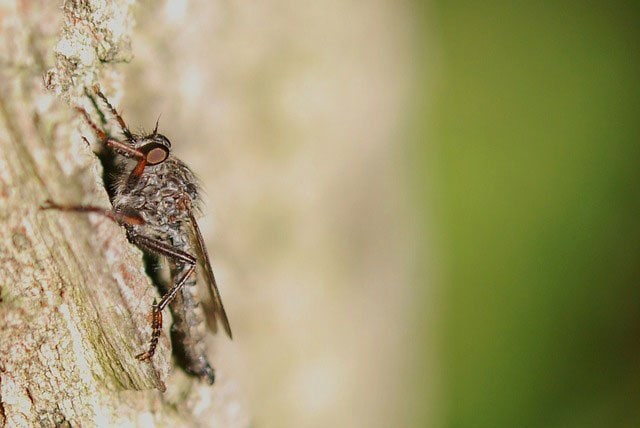Parasitology

Biology is science that covers a wide variety of subjects. From human beings to plants, animals, bacteria, cells, viruses and many more, Biology encompasses the study of every living thing on Earth. Since the subject is tremendously expansive, Biology has been subdivided into plenary branches. One such crucial branch of biological science is Parasitology. Similar to its title, Parasitology is certainly the study of parasites. However, that's not it. This subject also deals with the study of hosts and takes note of the relationship and interaction between a parasite and a host.

How To Become A Parasitologist?
Parasitology is interlinked with subjects like Molecular Biology, Genetics, Ecology, Bioinformatics, Evolution, Cell Biology, Immunology and Biochemistry. In a nutshell, Parasitology is a multidisciplinary course of science study.
As scholars, you are certainly curious to know about the course outlines of Parasitology, isn't it? Well, here's a clue:
As a primary step of education, you will definitely be given lessons focusing on the introduction of modern biology. Since Parasitology deals with the study of microscopic protozoan, you will also be gaining insight into Microbiology. Laboratory techniques and methods of application are deliberated for all students. As a core part of Parasitology, students are taught ways to figure out host responses to microbes. This automatically ropes in concepts of immunology and infections – what causes it and how to stay clear from infections.
Parasites that are categorized as harmful pathogens require effective treatment for combating the malicious impacts. To support this, courses on Parasitology focus on the study of Biochemistry, its relationship with the subject, and its application. Concepts of pathogenicity and useful methods of treatment are much emphasized during the course of study. Topics like chemotherapy, biochemical Parasitology, and ways of controlling parasites or pathogens like viruses and bacteria are covered too.
Parasitology grads do not fall short of banking upon brilliant career opportunities. Sectors of Biotechnology and Pharmaceutical Industries are always open for the meritorious grads. Since the innovation of vaccines and new drugs are on a constant roll, the need for Parasitology students is also constant. If a student is more focused on researching the subject further, he/she can always for a master's degree, Ph.D., or a fellowship program. Last but not least, other than academics and diagnostic areas, Parasitology students can also find employment with any eminent International Development body.
The power to disinfect for the prevention and/or elimination of legionella.
A mistaken belief is being infested by parasites such as mites, lice, fleas, spiders, worms, bacteria, or other organisms. Treatment information and news.
Center for Disease Control’s parasitology diagnostic web site, identifying parasites of public health concern.
Korkmaz’s Parasitology Resources
Korkmaz’s Parasitology Resources selected by SciCentral as one of the best scientific directories on the Web.
Laboratoire de Biologie Parasitaire, Protistologie, Helminthologie
Laboratory of Biology of Parasites, Protistology, and Helminthology, National Museum of Natural History, Paris, France. Research, publications, researchers, collections, and databases on Nematodes, parasitic Platyhelminthes, and Protozoa.
Genome databases and research resources provided by the European Bioinformatics Institute.
Parasites and Parasitological Resources
Includes parasite images, information, and a directory of parasitologists.
Parasitological Research Groups and Societies
Parasitological Research Groups worldwide: Liverpool School of Tropical Medicine/UK, Institute for Zoology – special Zoology – Parasitology TU Dresden, Centre for Applied Entomology and Parasitology Keele/UK, International Institute of Parasitology, etc.
Derived from medical microbiology course lectures given to second-year medical students at the University of South Carolina School of Medicine.
Plant and Insect Parasitic Nematodes
Features definitions, a nematode of the week, genus comparisons, bibliography, and more.
PlasmoDB: The Plasmodium Genome Resource
The Plasmodium falciparim Genome Project’s official database contains genomic sequence data of multiple types for multiple organisms.
Quantitative Parasitology 1.0
Statistical tools in QP 1.0 1 to describe a single sample of hosts: 1.1 Binomial Confidence Interval of Prevalence, 1.2 Bootstrap Confidence Interval of Mean Intensity, 1.3 Confidence Interval of Median Intensity,1.4 Aggregation indices (var/mean, discrepancy, k of the negative binomial) 2 to compare two samples of hosts:2.1 Fisher’s Exact Test for Prevalences, 2.2 Bootstrap Test for Mean Intensities, 2.3 Mood.s Median Test for Median Intensities.
Here is a collection of images of medically important parasites. The majority of the images show diagnostic stages of the parasite concerned, in the most commonly encountered.
Trypanosoma brucei: Genome Project
Genome initiative promoted and partly sponsored by the World Health Organisation.
Cite this page
Bio Explorer. (2026, January 28). Parasitology. https://www.bioexplorer.net/divisions_of_biology/parasitology/
